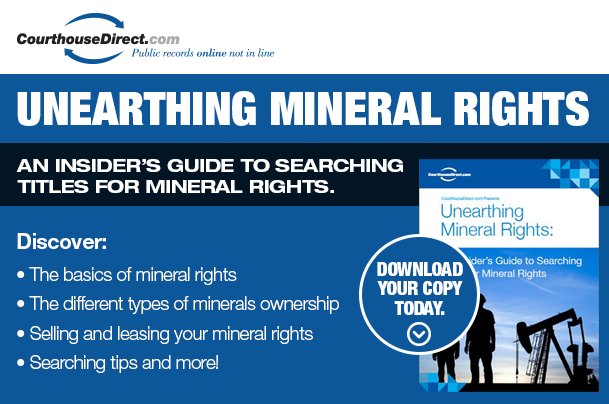 In energy-rich areas of the United States, divorcees frequently wrangle with the issue of shared mineral rights. While the legalities that surround these rights aren't fundamentally different than those that concern any other type of jointly held property, interpretations of the law may vary from jurisdiction to jurisdiction. If you're going through a divorce and require guidance on disposing of shared mineral rights, you'll need to remember a few key points.
In energy-rich areas of the United States, divorcees frequently wrangle with the issue of shared mineral rights. While the legalities that surround these rights aren't fundamentally different than those that concern any other type of jointly held property, interpretations of the law may vary from jurisdiction to jurisdiction. If you're going through a divorce and require guidance on disposing of shared mineral rights, you'll need to remember a few key points.
Defining Mineral Rights
Mineral rights are broadly defined as legal powers that confer the right to explore, exploit and sell the mineral wealth that underlies parcels of real estate. They're initially attached to the titles to specific pieces of property and may be sold, leased or divided without compromising the integrity of the properties to which they apply. Whereas "fee simple" interests comprise regular titles as well as mineral rights, certain other forms of property ownership may not include mineral rights. Before you determine the proper means of disposing of your shared mineral rights, ensure that you actually have control over them.
How Are Mineral Rights Classified?
In most states, shared mineral rights are classified as "marital property." This designation applies in the vast majority of cases: Unless you've sold or transferred your mineral rights to a third party, a lease or other agreement won't affect your ownership claims. Coincidentally, most mineral-rich states adhere to fairly broad definitions of "shared property" and often hold mineral rights to an expansive "community property" standard.
Community Property vs. Separate Property
In so-called community property states, disentangling shared mineral rights can be a trying process. If you wish to retain complete control over your property's mineral rights after a divorce, you'll need to prove one or more of the following:
- You purchased the property in question prior to the marriage and continued to be responsible for the bulk of its mortgage.
- You obtained the property through descent or as a gift.
- You received the property as compensation for a legal judgment.
On the other hand, so-called separate property states make it easier to assign full mineral rights ownership to one spouse or another. If you can prove that you performed the bulk of the work required to obtain the property or took full responsibility for making pertinent mortgage and tax payments, you may be able to retain control of the property and its attached mineral rights.
Title and Ownership Matter
It's often said that "possession is 90 percent of the law." This truism certainly applies to the issue of shared mineral rights in divorce. Despite the approach's obvious conflict with community property laws, courts in virtually every state have ruled that properties without joint titles may be excluded from "community property pools." If you used your own funds to purchase a property with mineral rights during the course of your marriage while remaining its sole title-holder, you may be able to retain full possession of its attached mineral rights. However, some states require spouses to assent to this "sole title-holder" arrangement during the post-sale closing process.
Royalties and Working Interests
Royalty and working interest payments add an additional layer of complexity to this issue. In most cases, these payments must be disbursed in accordance with extant ownership arrangements. Sole title-holders who retain full control of their properties and mineral rights after a divorce should be eligible to receive full royalty and working interest payments. Joint title-holders will need to arrive at a "split" arrangement. In certain situations, royalty and working interest payments that would normally devolve to sole title-holders may be used to fund alimony or child support settlements.
Final Thoughts
The divorce process is usually complicated and almost never pleasant. If you and your spouse reside on a property to which productive mineral rights are attached, you'll undoubtedly face an additional hurdle during your long, painful legal separation. Although the divorce laws that concern shared mineral rights may seem straightforward, it's crucial to understand the nuances of the law and ensure that you aren't deprived of a productive mineral interest without just cause.
* Image courtesy of FreeDigitalPhotos.net





















